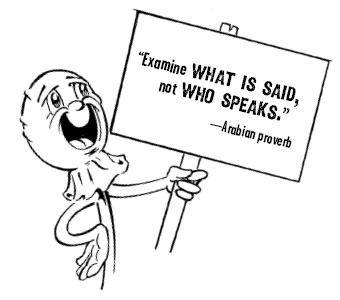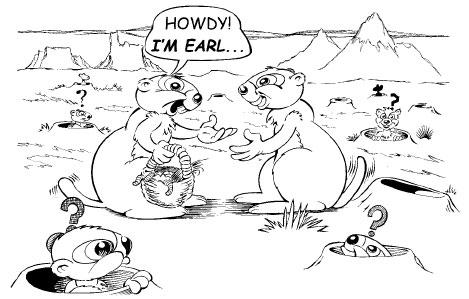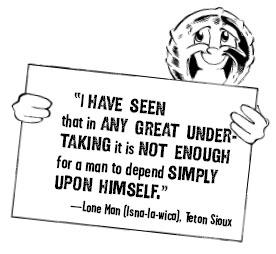When All Hell Breaks Loose (92 page)
Read When All Hell Breaks Loose Online
Authors: Cody Lundin

"The 911 system was overloaded within ten minutes of the outage. Call rates jumped to 500 calls per hour for five hours [2500 calls] when normally 200 calls would come in—which is a ten-time increase."
—Anonymous witnessed account of the infamous
1996 power outage that caused a massive cascading
failure of the power grid in the western United States

E
mergencies rarely occur with any prior warning, and their effects can quickly cripple normal information sources. Even if you have all of your survival bases covered, you'll still want to know what's going on in the outside world. Emergency bulletins will give you extremely valuable information that may directly affect your survival, or at least let you know how long you'll need to eat rice. On the other hand, the broadcast may be full of sensationalism, half truths, or outright lies, perpetrated by networks to gain higher ratings ($) or by outright news-slut reporters desperate for the first and most likely inaccurate story. Cross-reference emergency broadcasts whenever possible to try and get the straight story. Whatever type or types of communications you decide to use, don't put all of your eggs in one basket, and expect the unexpected.
Comprehensive emergency communications in and of itself is extremely technical, and more than one book has been devoted to the subject. If you feel your family needs more detailed information than what this chapter provides, then practice self-reliance and get off your butt to find the information you need. Remember, there is no one-size-fits-all emergency plan for every home.
Knowing Your Neighbors
"W
ON'T YOU BE, WON'T YOU BE, PLEASE WON'T YOU BE MY NEIGHBOR
?"—M
R
. R
OGERS
At first glance, most assume communications refer to mechanical means of sending or receiving a message. While this is true, it shouldn't negate more basic, human forms of communication during an emergency. I have already written about the power of the tribe, of having many people who are all on the same page regarding a certain intention. A well-oiled and disciplined team can accomplish much more than the stoic loner. Any neighborhood that can be cultivated to prepare together for emergencies will be a force to be reckoned with when the chips fly. Although done so after the fact, tight-knit communities in New Orleans did what they had to do to take care of their own after Hurricane Katrina. Taking the bull by the horns, neighborhood "tribes" quickly sprung up to do what governmental agencies had failed to do.
These tribes had the courage and wisdom to effectively communicate their needs to others. This initial communication was fostered months and years before the hurricane struck by people who talked with each other on a daily basis. Even if they weren't friends, they damn sure knew who was in their neighborhood and their basic patterns and habits of movement. When the elderly lady who lived alone with her cat didn't put the cat out as she did each morning, her neighbors noticed and came running to check up on her. Everyone took the responsibility for being the eyes and ears of the neighborhood, before and after the disaster. The flip side of this is the elderly gentleman in New York state who spent an entire year in front of his TV, even though he was dead. Plumbers responding to damaged water lines due to frozen pipes found his literally mummified corpse sitting in front of the television, which was still on. When questioned by news crews, neighbors had assumed that he had been taken to a care home, regardless of the mail that piled up and spilled into the street from his mailbox.
I know it's difficult to know your neighbors in our fast-paced, individualized society, where cyber-friends are more common than human friends. Being an instructor and leader of people under great psychological and physiological stress in remote wilderness areas, I understand fully that getting people on the same page in a stressful time is similar to herding senile cats with three legs. You must try. You must try as hard as you can to put your personal agendas behind you and bend for the common good of the whole. Once the situation goes the way of
Lord of the Flies
, you will be hard-pressed to restore any useful communication or cooperation with others. The "other people" variable, in other words, human nature under pressure, is perhaps the biggest wild card in your urban emergency. It may be one of the biggest challenges you will face as a leader as you try to piece your neighborhood back together one home at a time. (Whether you are conscious of the fact or not, the material in this book is priming you for your leadership role during emergencies.)

Neighborhood block watches are helpful, as at the very least you'll meet your neighbors. Wanting to know who lives near you and communicate basic plans and precautions does not mean you need to spill the beans about everything your family has stored to prepare for a crisis. Use caution, common sense, and let your intuition be your guarding guide as you sift through how you'll interact with neighbors. Although I want you to try to bridge the gap and put yourself out there to others, I'm well aware of the unfortunate fact that in this current day and age, loose lips can sink ships.

"All in the Family" Signals
[The Emergency Game Plan]
The knowledge of knowing where your family members are after a catastrophe is pure gold. If applicable to your situation, agree upon a prior plan or plans of action about what to do when a crisis hits and you have no other means to communicate with each other. A form of this advanced game plan is common in the realm of the modern survival scenario where the outdoor enthusiast,
before
they leave for the outdoors, leaves a detailed game plan about where they are going and when they will be back with at least two loved ones. This 5-W game plan is composed of the following parts:
Where
you will be going
When
you will return
What
vehicle you're driving (or whatever means of transportation you're using)
Who
is in your party
Why
you're taking the trip
If this seems extraneous for an urban situation, a minute's pause will confirm that most family members automatically do this anyway before they leave for work or school. Brother Jim (who) goes to his job (why) at the gas station (where), after which he'll return home a bit after 5 p.m. (when), and he's driving his blue and gray Toyota pickup truck with California license plate oU812 (what). If something happens to Jim, or Jim needs to be contacted for whatever reason, the rest of the family is not totally in the dark about how to get a hold of him.
I strongly recommend that your family have a game plan about
what to do
and
where to meet
should a major disaster occur. All forms of communication, even smoke signals and signal mirrors, are composed of moving parts, and moving parts can fail under the real-time stresses of a survival scenario. If everything else goes to pot, your family game plan will give you a tangible goal upon which to focus your attention.
Using Your Home as a Signal to Emergency Response Personnel
There are times when using a simple signal from your home, whether you are in your home or not, can dramatically reduce the bureaucracy inherent within disaster mitigation. Each summer in the dense ponderosa pine forests surrounding Prescott, Arizona, the talk always turns to fire danger due to the prolonged drought in the Southwest. Many mountain communities are shoved deep into the hills, and the access and communications required to evacuate certain neighborhoods is sketchy at best.
Cooperating with local fire agencies
before
a potential deadly wildfire, many neighborhoods worked out a simple communications plan to alert the authorities as to whether they were still in their home or had evacuated to safer ground. This common-sense, no-frills system revolved around hanging a white towel from the front door as a signal that the home was empty. This simple yet effective idea saves precious time and resources, as emergency response personnel are relieved of having to knock on every door to alert homeowners of the need to evacuate. Firefighters know from the street whether homeowners have safely left their homes or not.
It would be very wise to get together within your family or community and do something similar; coordinate with local disaster response personnel to have a commonly understood and acknowledged system of communications before the next crisis.
Reverse 911
Some law enforcement agencies are using the "reverse 911" method to relay emergency information to households. The concept is to notify homes within the path of a pending disaster by using a prerecorded phone message. If your home lies within the corridor of an approaching tornado, for example, you would get a heads-up phone call providing information to help you mitigate its effect, whether you seek shelter or evacuate the area. Although some privacy advocates are bitching about this, I would much rather get a phone call about an approaching killer hurricane than not be pestered about buying car insurance or vitamins. If used responsibly, this is a great asset to get the word out about a potential disaster, but it's only effective if the phone lines are intact and you're home to take the call.
The [Disaster] AM/FM Radio
(
Important Note:
All of the following means of communication require a power source. For obvious reasons, always opt for battery-operated models or other forms of alternative power that are not subject to the whims of the conventional power grid. For this reason and portability issues, television is not recommended as a sole means for retrieving emergency information after a disaster.)
The more you can control the receiving end of a broadcast, the better off you may be. In other words, although satellite radio has more news channels than you have fingers, if the company that broadcasts them into your living room is down, you're left in the dark. Every home should have a basic AM/FM radio on hand that does not require conventional electricity to operate. AA battery-operated radios are the most obvious choice and there are a plethora of them to choose from. If you live in a more remote suburban or rural area, you might need a stronger radio that can aggressively pick up weaker signals. People living in heavily wooded or mountainous terrain may also suffer from broken, static-filled radio signals. The chances are high that you already know if your radio cuts out or not; but maybe not. With the advent of music technology from satellite radio to iPods, conventional AM/FM radios are becoming a thing of the past. Test whether your AM/FM radio works for your location. Don't worry so much about crystal clear reception as you're not concerned with listening to Mozart. Many AM broadcasts will trump FM broadcasts for disaster news, and some can be picked up from a very long distance, especially at night.
If a widespread emergency occurs, civil defense-affiliated stations are set up to broadcast survival information on the AM broadcast band
.